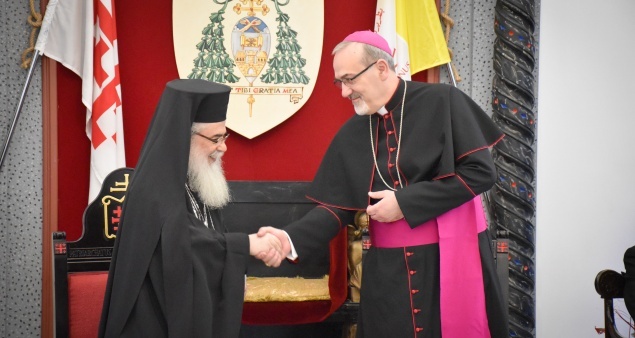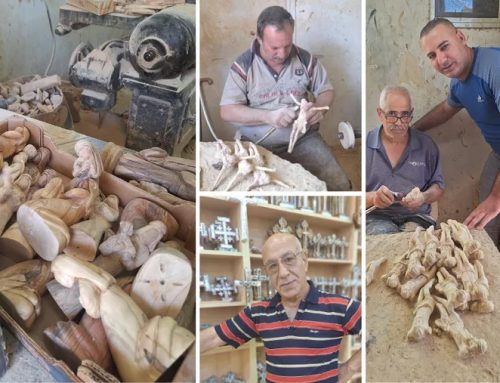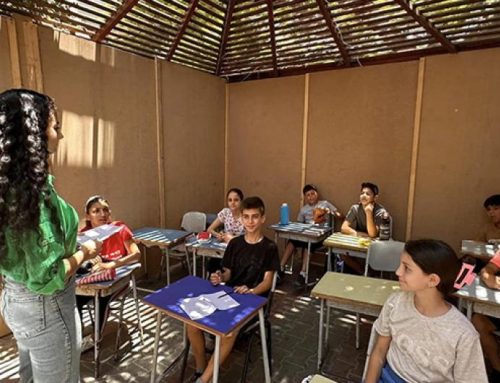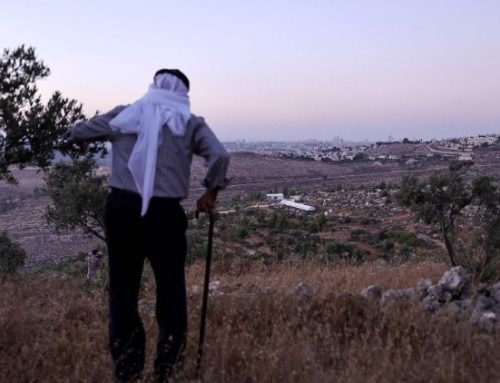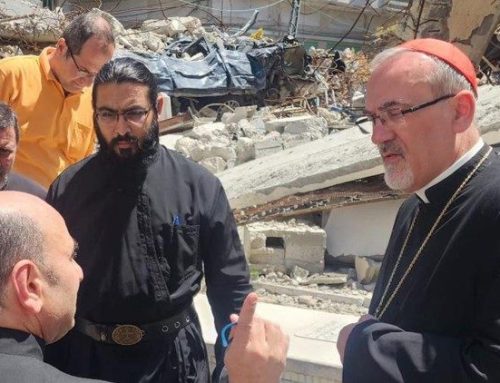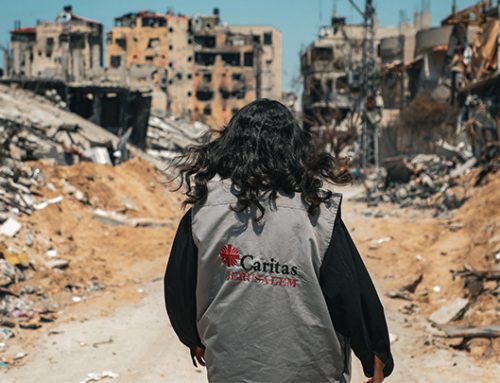JERUSALEM – On December 28 and 29, 2021, the various Christian leaders of the thrice-holy city came to the Latin Patriarchate to exchange Christmas greetings with Archbishop Pierbattista Pizzaballa, Latin Patriarch of Jerusalem.
This is a long-standing tradition, which takes place not once but twice a year, during Easter and Christmas. During Christmas, greetings are exchanged three times: first on December 25th, then on January 7th (Orthodox Christmas Day, which corresponds to December 25th in the Julian calendar) and finally on January 19th (Christmas of the Armenian-Apostolic Patriarchate of Jerusalem, which corresponds to January 6 in our calendar).
On Tuesday, it was the Greek Orthodox delegation who came first, guided by Patriarch Theophilos III. Flanked by Kawas wearing traditional garb, they made their way to the reception hall of the Patriarchate in the presence of His Beatitute Pizzaballa, who welcomed them. The two Patriarchs then spoke in turn about the current situation and the Christmas season, before enjoying a short moment of conviviality under the flashes of the photographers.
The departure of Theophilos III was then followed by the arrival of the Coptic Orthodox, Syriac Orthodox and Syriac Catholic, Anglican, Lutheran, Melkite Greek Catholic, Maronite, and Armenian Catholic delegations. They all exchanged Christmas greetings before going on to sing traditional carols in groups.
On Wednesday, Archbishop Pizzaballa received His Beatitude Nourhan Manougian, the Armenian-Apostolic Patriarch of Jerusalem and head of the Saint-James-Brotherhood, for a final exchange of greetings before January 7th, which will mark Christmas in the Julian calendar.
For Father Nikodemus, Patriarchal Vicar for the Migrants and Asylum Seekers at the Latin Patriarchate of Jerusalem, this traditional ecumenical meeting is a moment not to be missed. “Even as a young monk of Dormition Abbey, I made an effort not to miss any of these visits. They are firmly anchored points in the ecclesial life of Jerusalem and keep ecumenical conversation and togetherness alive. They prevent each ecclesial community from becoming preoccupied only with itself – and ultimately they make clear again and again the common firm basis of our being here: the common faith in the Incarnation and Resurrection of our Lord and Savior.”
By: Cécile Leca/ lpj.org

